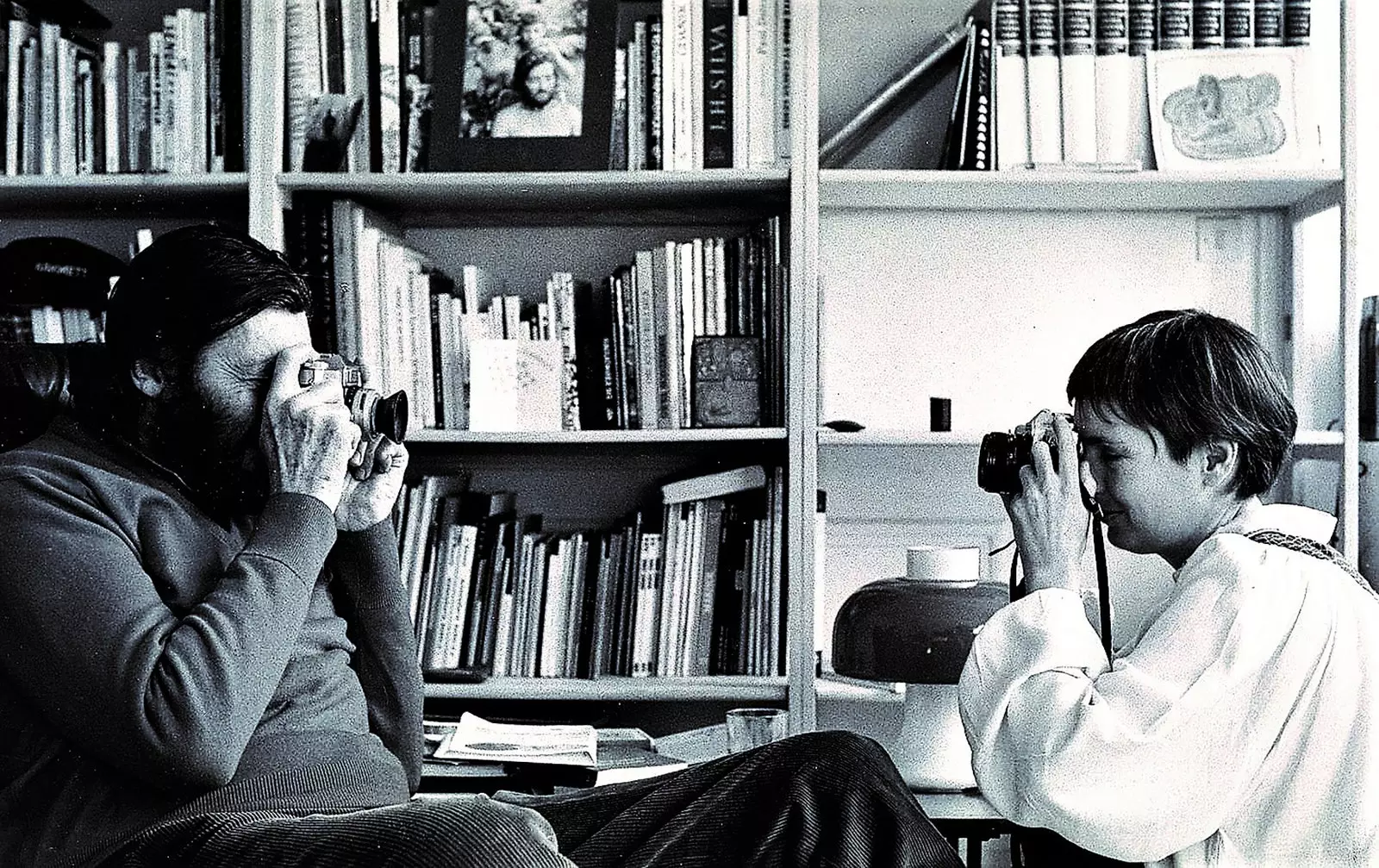
Cortázar from A to Z, Ed. Alfaguara
The tender and crazy story that Julio Cortazar Y Carol Dunlop they wrote in The Autonauts of the Cosmotrack these days acquires another dimension. If you look at it with cronopios eyes, it works like a prediction of another way of traveling, although predicting is an act so little Cortazarian and so little cronopio.
The Autonauts of the Cosmotrack It is the story of a trip that happened in reality. Cortázar (almost 70 years old) and his wife at the time decided go on an adventure.
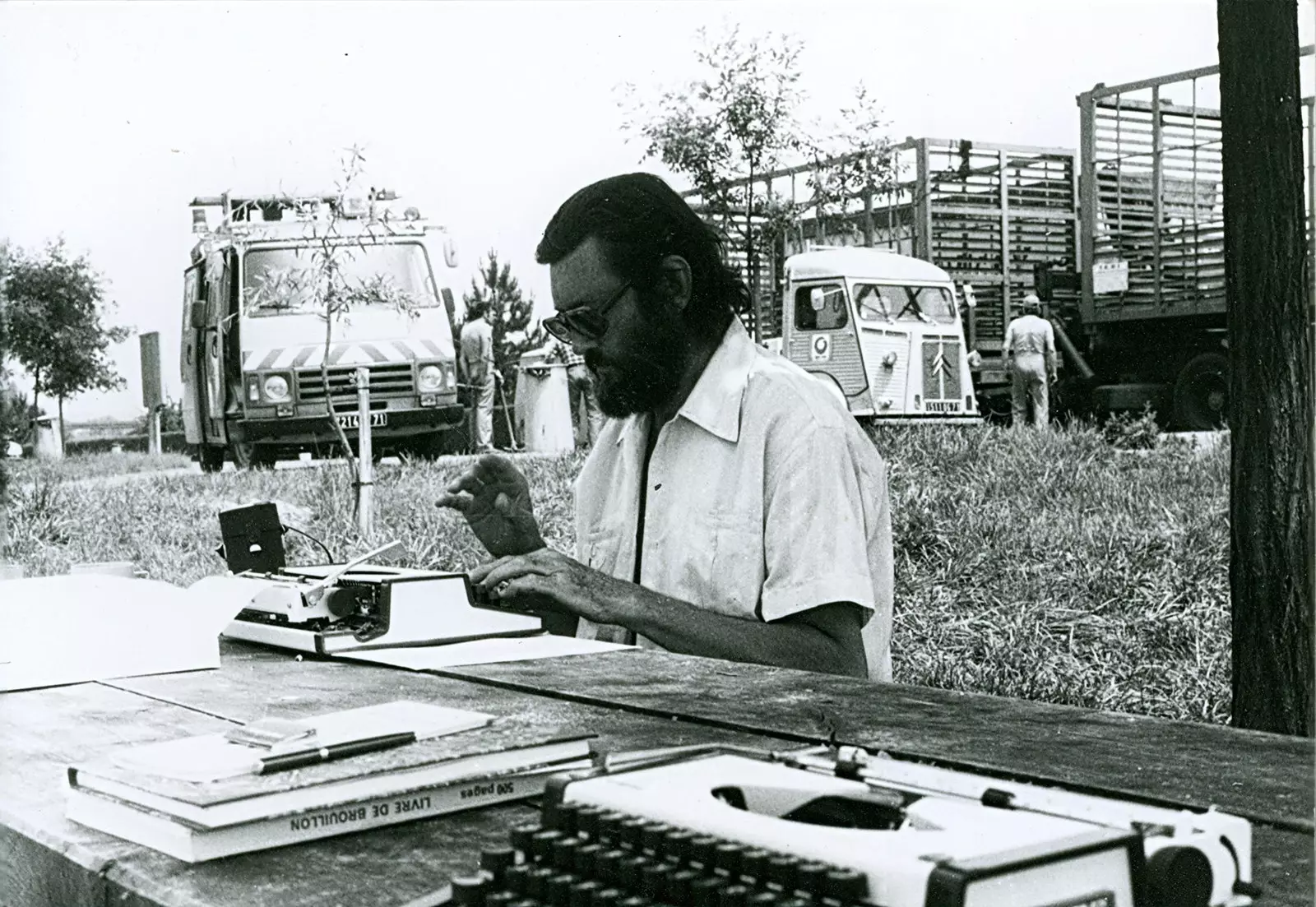
Cortázar from A to Z, Ed. Alfaguara
It was, how could it be otherwise, absurdly poetic and poetically absurd. It was about traveling from Paris to Marseilles on the Autostrada du Sud in a beat-up Volkswagen van which they had baptized with the name of a Wagnerian dragon, Fafner.
The trip had some strict rules. The most important is that travelers, whom we will call autonauts, could never leave or divert from the highway. could stop at two bus stops (rest areas, air, in French) a day and sleep in the second; the expressway had 65 in total. They should look at everything they see and experience with the spirit of an entomologist, and lastly, they would write a book of the expedition. An army of buddy friends would supply them with food.
Why that trip? Why that route? Why stop at bus stops? Who cares about the whys.
The Autonauts of the Cosmotrack was published in 1983 as a miscellaneous: contains a travel diary, photographs (with hilarious captions), press clippings, stories and illustrations by Stephane, Carol Dunlop's 14-year-old son.
If you, "oh, pale and intrepid reader" (as Cortázar appealed to us), have it close, read it or re-read it with eyes of April 2021. Here are some of the lessons we can draw for the new age from this delightful book:
YOU MUST HAVE A PLAN
Even if it only makes sense to us, even if it's absurd (the less officially useful the trip, the better) , even if it is small like going to look for a bird or our first school. A plan is the springboard.
We have always done them, but now more. We already know what it is not to travel: when we do, we have to think it through. Along the way, the plan may become something else or be forgotten. Let us accept that “as always, practice sends to the devil any theory too sure of itself”. And what else gives.
THE TRIP PREPARATIONS ARE ALREADY THE TRIP
The expedition begins when you start thinking about it. Cortázar dedicates 30 pages in the book to recounting the prolegomena of the trip. He even writes us the shopping list that Carol and he made before leaving: “bulk whiskey, id. wine, a dozen eggs, two bottles of mineral water, grated Parmesan cheese, butter, oil, vinegar, mustard, Nescafe , desserts (preserved fruit, creams), ham, tuna, sardines, tube mayonnaise….”and a long etcetera.
We will savor traveling more than ever, because we know how threatened that world is. Therefore, we will delight in every detail: in the suitcase, in the maps and even in the sandwich that we will prepare for the trip.
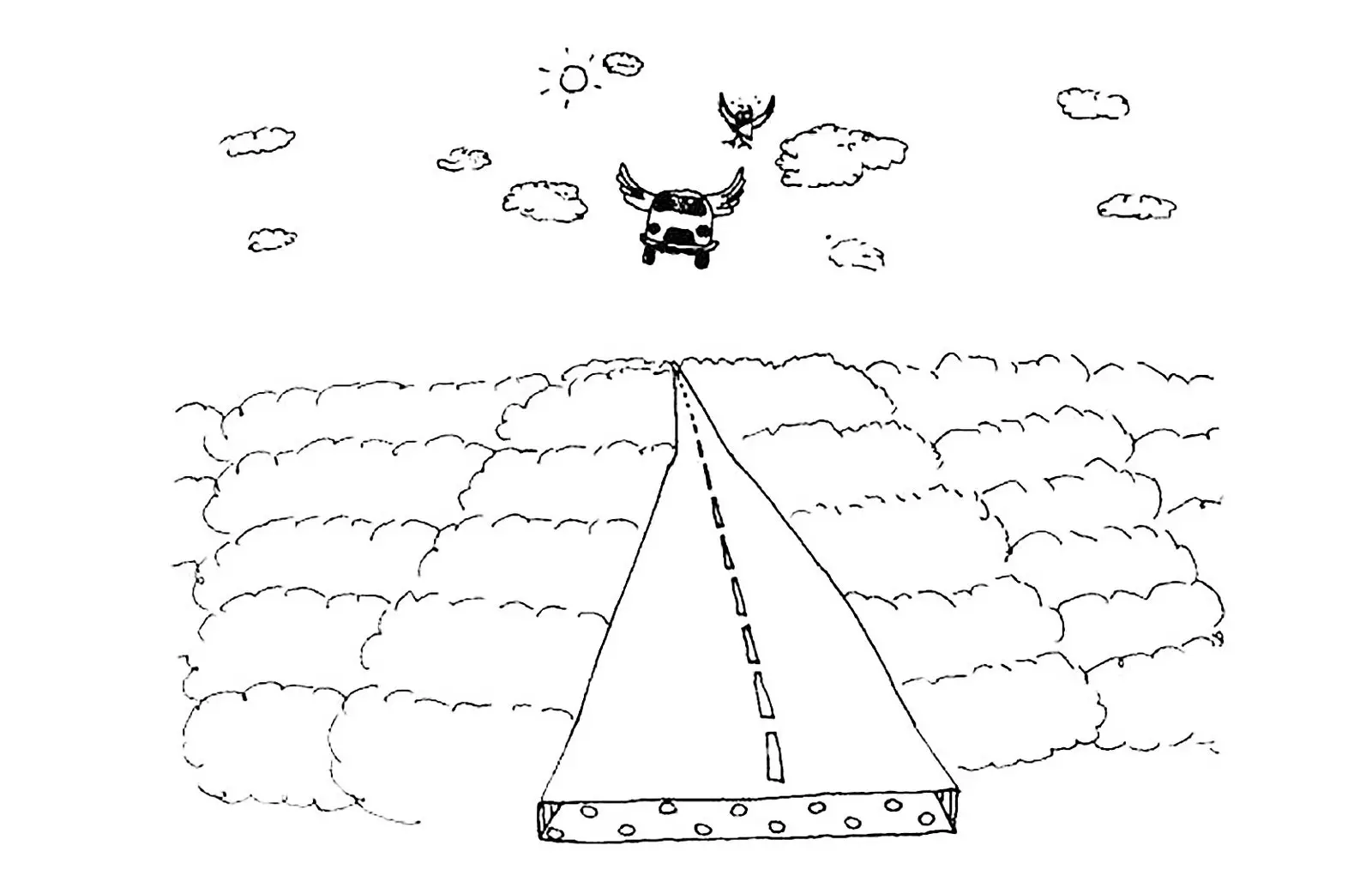
The Fafner, by Stèphane Hèbert
LET'S NOT BE IN A HURRY
Good trips always await. Julio and Carol took several years to carry out their idea; life got in the way. There is no need to force: we will travel when we can. As Cortázar himself writes. "How long did it take Magellan to set sail?"
There is no virus that can stop us from visiting Villa Copenhagen or visiting Columbus, Indiana. We will travel without anxiety, not to 'take advantage' of days off, or discounts. Take advantage, what a prosaic verb.
LET'S NOT HAVE A PAUSE
If we want to take a trip, Let's not stop fighting for him. Cortázar wanted to carry out this madness and he did it when he was about to turn 70. There is no age for any trip. Let us not be deceived by telling us otherwise.
COME WITH ME OR COME WITH ME
The company is everything. It is more important than the destination and the plan. You have to travel with someone we like and that someone can be ourselves; someone with whom we can be quiet.
We will take good care of the co-expediter and also the accomplices, people who understand our plans. A good yardstick is to give them this book: if they enter into it and understand the usefulness of the useless and the reality of the surreal, they can be adventure partners.
WE HONOR FAFNER
In recent years we have treated with disdain the means of transport that took us to and from us, as if they were at our command. It's time to give them the importance they have, which is everything.
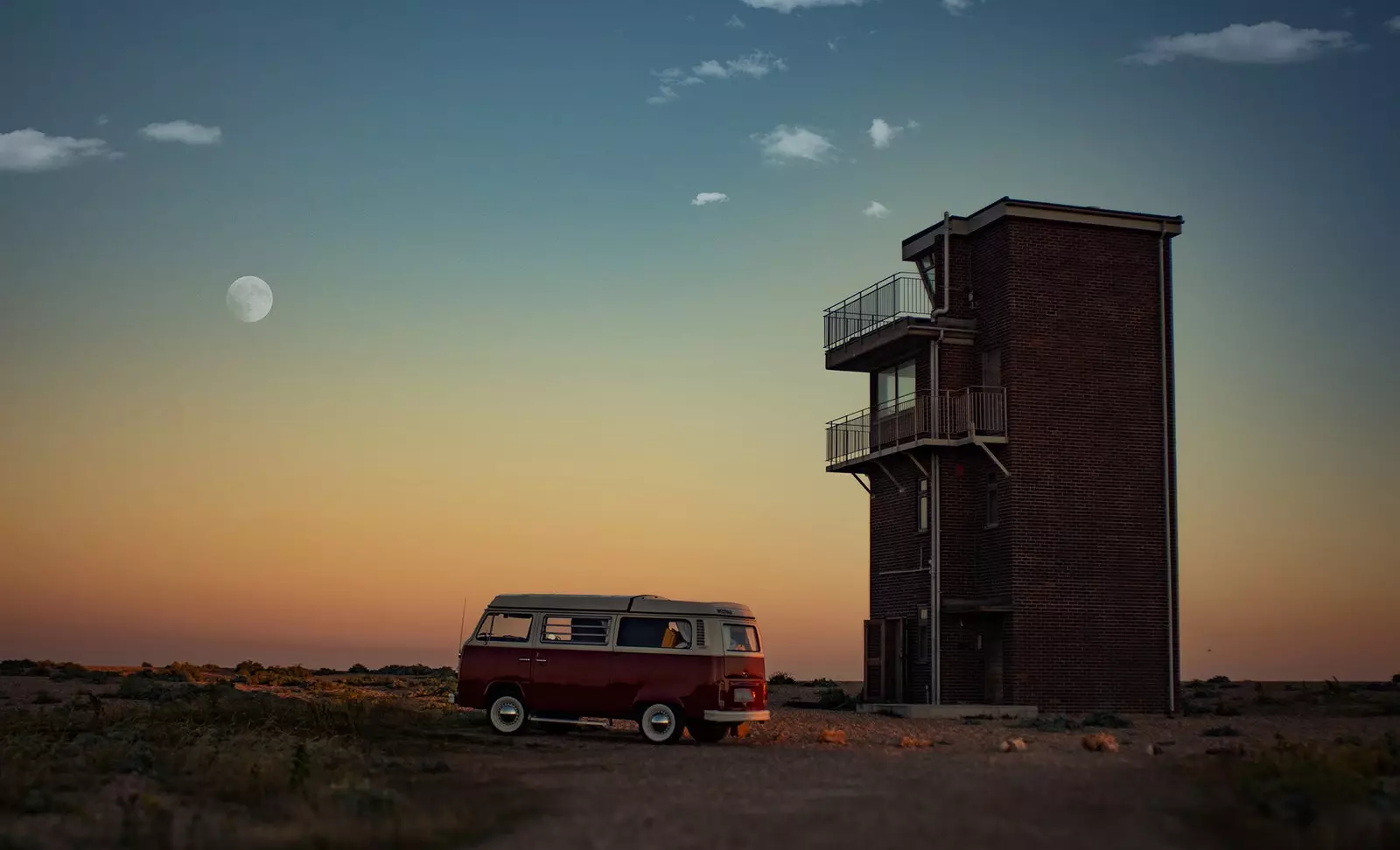
Every trip is thanks to what it takes us. Let's be thankful, well...
Cortazar admits that Fafner is the third book author; who wouldn't want to hug this loud and friendly van. “There is no doubt in our mind that Fafner is the third explorer and that he approves of this slow and deep advance, whereas other voyages may have seemed to him too frivolous, too free rein, as we do not think the dragons and the dragons would like. elephants”.
Every trip is thanks to the fact that something takes us. Let us be grateful, then: let us choose it consciously and bother to know what it is like, be it train, plane or rowboat. The journey is up to him.
THE HIGHWAY IS THE JOURNEY
Did Cortázar and Dunlop care about reaching Marseille? Laugh at laugh In fact, they question each other, with their characteristic humor: "Does Marseille exist?"
to the explorers they cared about what happened at the bus stops, the people they met, the music they listened to (tangos, Ella Fitzgerald, Boulez, Susana Rinaldi, Schubert), the books they read Considerably depressed by the Spanish version of a travel book by Werner Herzog, I went to ventilate north of the parking lot.
in great detail They tell us every day what they ate: "Dinner: Rather sumptuous under the circumstances: cold cuts, celeri-rave, beets, corn, bread, coffee." In the movement they find the meaning of the journey. “The further we advance, the greater the freedom we seem to enjoy. And no, not at all, because we are getting closer to Marseille. On the contrary, probably the fact having moved away from the starting point and having simultaneously and completely lost sight of the end of the journey, it is what gives that quality”.
Travelers end up arriving in Marseille but… "The victory does not make us happy as we expected, quite the contrary." The journey did not begin, it had just ended.
PRAISE OF SLOWNESS
The rules of the game impose on autonauts a rhythm of its own. They can only stop at two stops a day, no matter how far away they are. It is not about devouring kilometers, but about making the trip. His was slow (it lasted a month, approximately) and Cortázar writes about the rhythm: “Cosmonauts on the highway, in the manner of interplanetary travelers who observe from afar the rapid aging of those who continue to be subject to the laws of terrestrial time, What are we going to discover when we get into a camel rhythm after so many trips by plane, subway, train?
Even they, relaxed beings per se, find it difficult to assume that pace of camels. To us, after decades of fast travel it will be difficult for us to accept that now perhaps the trips are less and slower. Destinations are reached when they are arrived. They took 33 days.
DEFENSE OF JOURNEYS IN WHICH NOTHING-HAPPENS
where every day happens without big surprises. It's okay to have routine Vacation, in which every day happens, apparently, the same. In reality, the same thing never happens. “We feel that we live with that intensity that only the fact of not doing anything can give us”. Cortázar embraces routine and repetition: "The whereabouts are what they are, poor angels, but each one represents an interesting modification within the unique scheme."
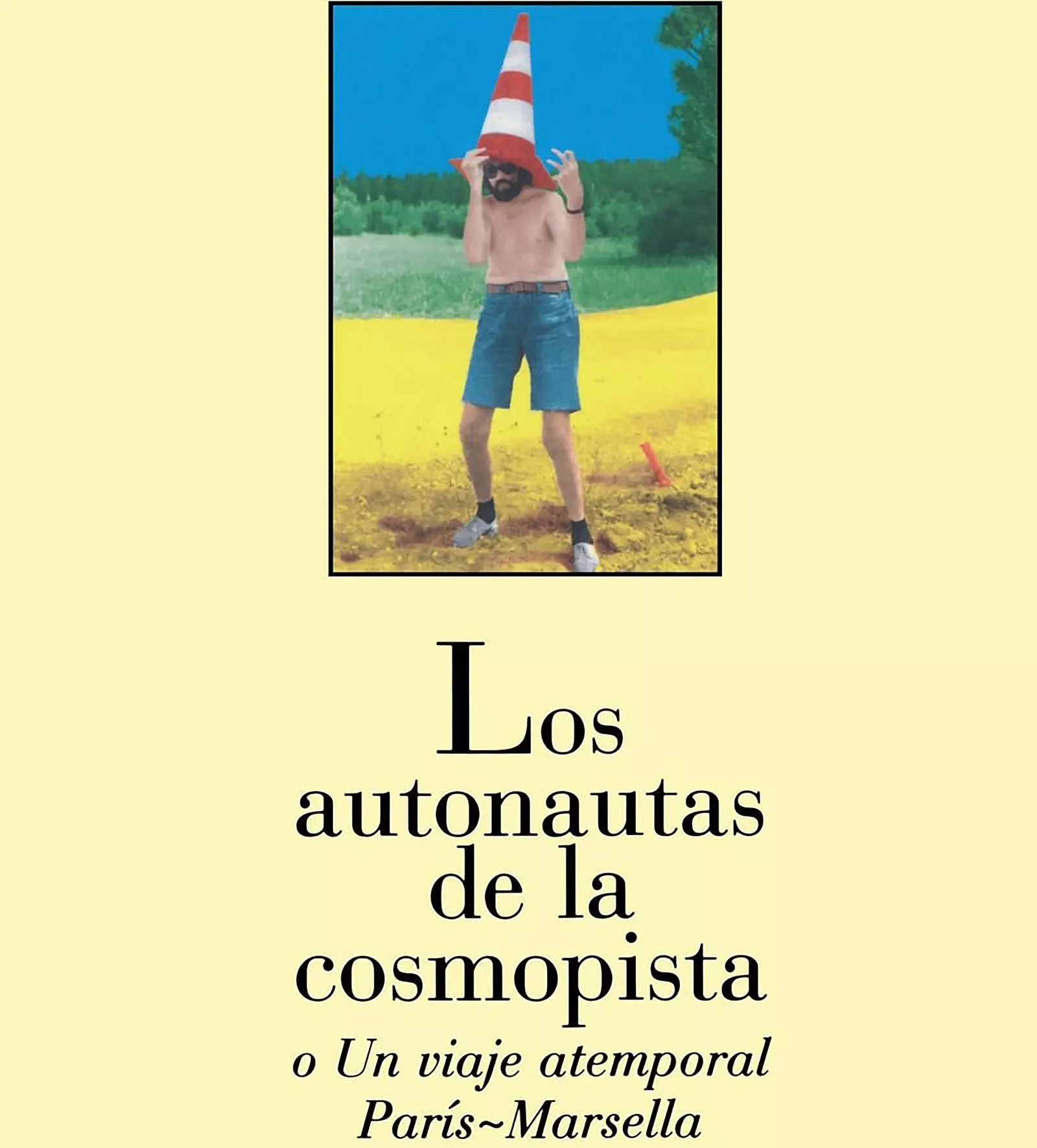
The autonauts of the cosmopista, Ed. Alfaguara
The trend consultancy The Future Laboratory predicts in its latest report that after a long time seeking to transform, grow and progress, Now we will travel looking for practical boredom.
YES TO IMPERFECT TRIPS
Life isn't perfect, why should poor travels be? Why do we load them with that pressure? Let's not apply the illusion of control that we do with life. The autonauts were spoiled by Fafner, they got sick, they encountered obstacles, sometimes it rained on them. If there's a downpour, we'll take pictures with a raincoat, like trashy superheroes, like Julio did to Carol. Always in favor of cronopios trips.
GAMES ARE A VERY SERIOUS THING
Also, imperfect, life is, or can be a game. Cortázar (El Lobo), 68 years old, and Dunlop (La Osita), 34 and sick, decided to plan this trip like someone planning a game. They also make it a game in which love sneaks through every page. He writes: “I remembered the games when I was eight, ten years old: this can be done, this can't be done, without explanation or reflection”. There is nothing to justify on a trip that wants to be a game.
Cortázar was proud of, at his age, not having changed and not having succumbed to the supposed seriousness of adult life. "I felt grateful," he writes, "for not having changed, almost at the end of life, on that plane that so many others substitute for seriousness or bearer shares." All games the game.
ALL PARKINGS THE PARKING
Beauty is everywhere. You just have to know how to look at it. Months without traveling will confirm it for us. Car parks, bus stops, camping tables, motels... The journey of the expeditionaries was simple, with hostile situations, almost precarious. Nevertheless, there is never a complaint; on the contrary, it is full of small celebrations. These are some examples that beauty is in the eye of the beholder:
“Parkinglandia is beautiful; it is ours, we are free in it and we love it”
“It happened that we were reading next to Fafner, under trees full of birds that laugh at ecology and seem very happy so close to the fumes of gasoline and the din of the highway”
On this trip there are no monuments or castles, which they pass by.
“Lunch: Chicken, apples, coffee. 1:55 p.m. Departure. 35ºC. 1:56 p.m. Fortified castle on the left. 2 p.m. Windmill on the right.
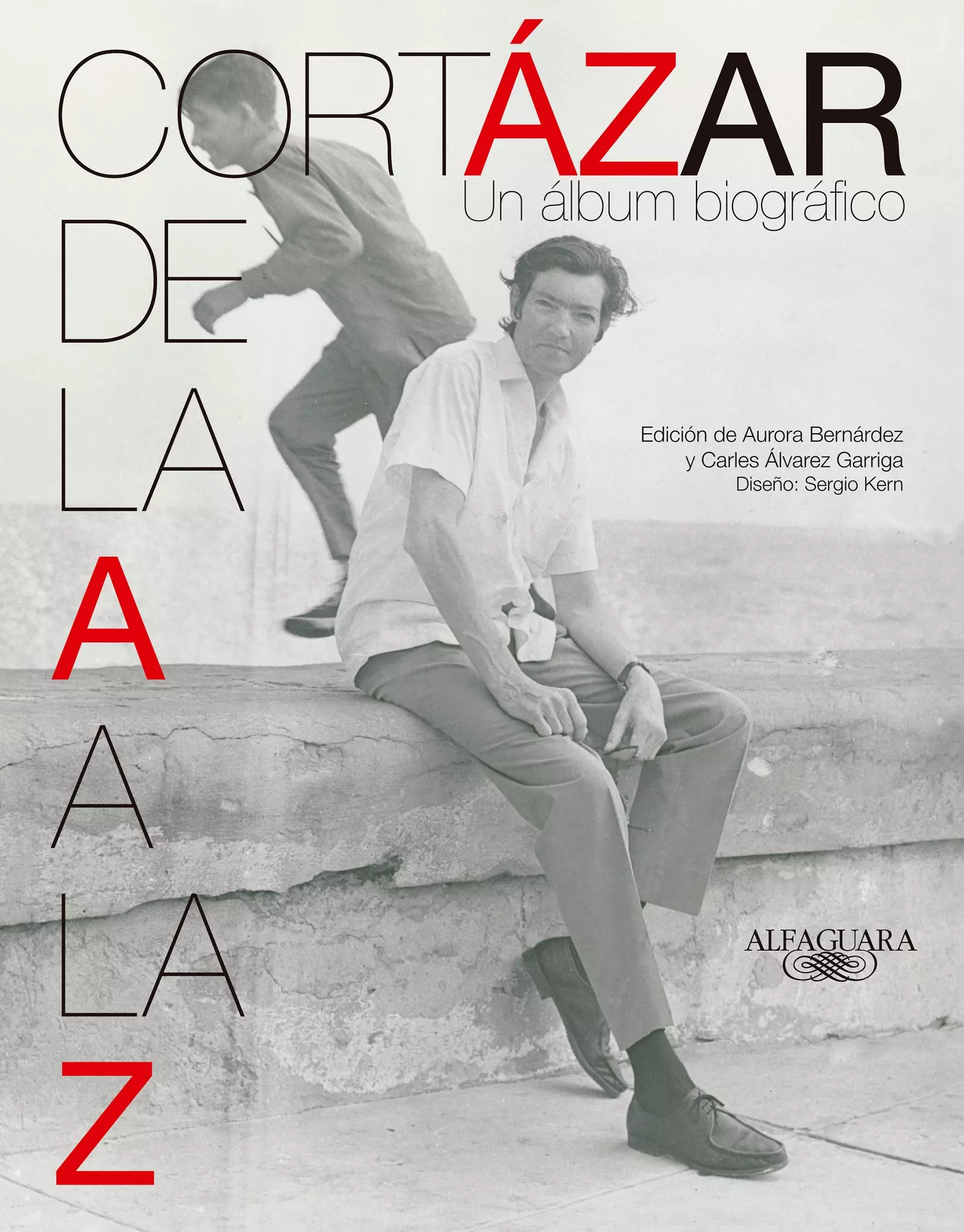
Cortázar from A to Z, Ed. Alfaguara
Travelers find beauty and surprise in visits from friends. They approach the highway to see how the expeditionaries are doing and to see with their own eyes “the mysterious prestige of the expedition”.
"When leaving he gave us two bottles of fendant wine, that pleasant liquid gold that now, after his departure, we are drinking for him and, as it were, with him. Cherries and fendant... Nobody brought things like that to poor Columbus in the early days of his voyage”.
THERE IS ALWAYS FUTURE
All journeys end and many fail to begin. Some of our travel plans have been put on hold. Autonaut Cortázar took several years to cross the highway from whereabouts to whereabouts. Let's be patient: there will be new trips.
“If our dreams come crashing down on us, as we fear, we will have to think of new and varied expeditions. The world is full of whereabouts, after all, where perhaps dreams of such wealth await us that they are worth all the trips out and in one of those none back." Many whereabouts await us.
